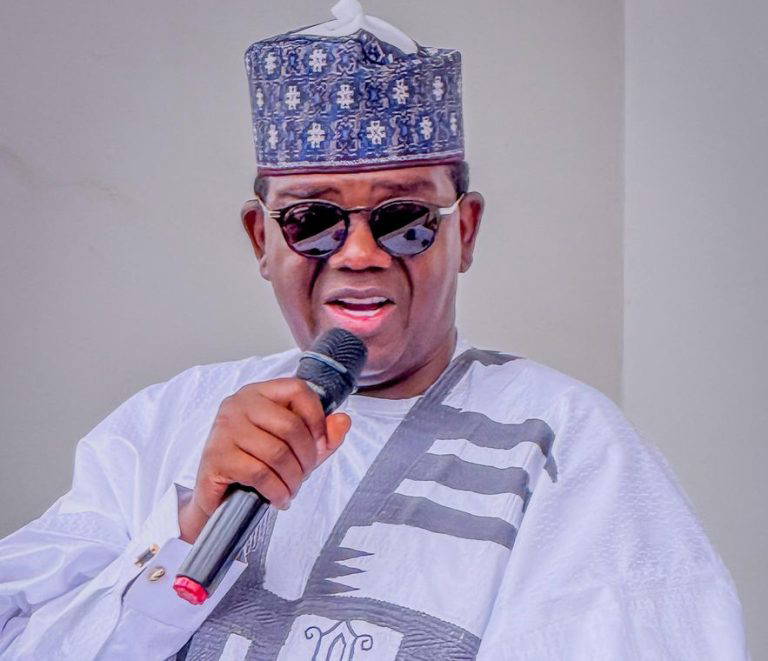The National Youth Service Corps (NYSC) is a symbol of unity, national integration, and youth development in Nigeria. This program, which was established in 1973, has played a pivotal role in fostering national unity and development through its various initiatives.
The creation of the National Youth Service Corps (NYSC) can be traced back to a pivotal moment in Nigeria’s history – the aftermath of the Nigerian Civil War (1967-1970). This war, marked by ethnic and regional tensions, left deep scars and divisions among the various segments of Nigerian society. As the smoke of the conflict cleared, it was evident that the nation needed a unifying force to heal wounds, restore national cohesion, and propel the country towards a brighter future.
The scars of the Nigerian Civil War ran deep. The conflict had pitted different ethnic groups and regions against each other, resulting in a fractured and distrustful nation. The country was at a crossroads, and it was imperative to find a way to rebuild the nation both physically and emotionally.
It was in this climate of uncertainty and fragmentation that the concept of the National Youth Service Corps took shape. The idea was not just to address immediate post-war needs but to create a lasting framework for unity and development.
The NYSC Decree, officially known as Decree No. 24 of 22nd May 1973, was a watershed moment in Nigerian history. General Yakubu Gowon, who was Nigeria’s military head of state at the time, recognised the urgent need for a program that could bring Nigeria’s diverse population together and simultaneously address pressing developmental issues. General Gowon’s leadership during this period was characterised by a commitment to national reconciliation and reconstruction.
However, General Gowon was not alone in envisioning the NYSC. Chief Adebayo Adedeji, then the Executive Secretary of the Economic Commission for Africa (ECA), played a crucial role in shaping the program. He saw the NYSC as an opportunity for Nigerian youth to serve their nation and, in doing so, gain a broader perspective on the challenges facing the country. His vision was not only about immediate post-war recovery but about the long-term development of the nation through its youth.
The combination of General Gowon’s leadership, Chief Adedeji’s vision, and the efforts of many others who recognised the urgency of the situation culminated in the birth of the NYSC. This program was envisioned to serve as a multifaceted solution to the complex problems facing Nigeria – a program that would bring unity, facilitate development, and instil a sense of responsibility and patriotism in the country’s youth.

The National Youth Service Corps (NYSC) was founded on four fundamental objectives, each serving as a cornerstone of the program’s mission to foster unity, promote development, and empower Nigeria’s youth. These objectives not only outline the goals of the NYSC but also highlight the multifaceted nature of the program’s impact on the nation.
1. National Unity
At its core, the NYSC was designed to be a unifying force in a nation deeply scarred by the Nigerian Civil War. The first objective of the NYSC, therefore, was to foster national unity. The program sought to transcend ethnic, cultural, and regional boundaries and create a sense of nationhood among Nigerian youth. By bringing together young people from all corners of the country, the NYSC aimed to diminish divisive sentiments and promote a stronger collective identity. This unity was not merely symbolic but was intended to manifest in practical, tangible ways, enabling Nigerians to appreciate their commonality while celebrating their diversity.
2. National Development
In the wake of the Civil War, Nigeria faced significant developmental challenges. To address these issues, the NYSC was tasked with harnessing the energy, creativity, and intellectual capacity of young graduates. The program recognised that these graduates held tremendous potential to contribute to the nation’s growth. Corp members were deployed to areas in need of their services, such as education, healthcare, agriculture, and infrastructure development. By strategically deploying fresh graduates to these sectors, the NYSC aimed to catalyse progress, bridge gaps, and create lasting solutions for the country’s most pressing challenges. It became a platform for the nation to tap into its youthful human resources for the greater good.
3. Promote Understanding
One of the profound impacts of the NYSC was its ability to promote cross-cultural understanding among Nigerian youth. By design, corp members were sent to live and work in regions outside their own, often far from their places of birth. This exposure was a transformative experience, allowing them to immerse themselves in different cultural, social, and economic environments. It encouraged mutual respect, empathy, and a firsthand understanding of the rich diversity that defines Nigeria. Through these interactions, the NYSC aimed to break down stereotypes, challenge prejudices, and build bridges between Nigeria’s various communities, ultimately contributing to a more harmonious and tolerant society.
4. Community Development
The NYSC was not solely about personal development; it had a significant emphasis on community development as well. Corp members were encouraged to take an active role in initiating and executing community development projects. These projects aimed to address specific needs in the communities they served, ranging from infrastructural improvements to healthcare initiatives and educational programs. By actively participating in these projects, the NYSC provided a platform for young Nigerians to contribute directly to the betterment of their society. In doing so, it empowered them to take ownership of their role in the nation’s progress, fostering a sense of responsibility and civic pride.
The NYSC has left an indelible mark on Nigeria’s history and development. It has significantly contributed to national unity, as young people from various regions live and work together during their service year, forging bonds, and dispelling stereotypes. Additionally, the NYSC has played a vital role in the development of rural communities, with corp members contributing their skills to areas that often lack access to vital services.
The NYSC program has also helped in the creation of a large pool of skilled and experienced youth who have gone on to excel in various fields, from politics to business and academia.

Is NYSC still relevant in 2023?
Over the years, the NYSC has evolved to adapt to the changing needs of the nation. The program’s components, including Orientation Courses, Primary Assignment, Community Development Service, and Winding-Up/Passing-Out, have remained integral to the experience of Nigerian youth. However, certain exemptions have been introduced, such as those for graduates of Colleges of Education and for university and polytechnic graduates above the age of 30, who are issued Certificates of Exemption after their education.
The NYSC experience is both mandatory and transformative. Evading the “clarion call” can result in serious consequences, as demonstrated by the controversy surrounding former Minister of Finance, Mrs. Kemi Adeosun, who was alleged to have presented a fake NYSC exemption certificate. The green khaki and brown boots, the traditional attire of the scheme, hold a special place in the hearts of many. Those serving are affectionately referred to as “corpers,” and they often receive preferential treatment in their communities, signifying their status as “government pickin.”
One significant expansion in recent years is the NYSC’s partnership with the Independent National Electoral Commission (INEC) to provide ad-hoc staff for elections. This collaboration began during the 2011 general elections and has become a crucial component of Nigeria’s democratic process. The NYSC curriculum has also been adapted to include entrepreneurial training, equipping corps members with skills to be self-employed after their service year. Furthermore, the monthly allowance for youth corpers has increased significantly, from N7,500 to N30,000.
While the NYSC has undoubtedly been beneficial to many, there are voices calling for its abolition. Concerns include security risks, abductions of corps members during their service years, inadequate infrastructure in orientation camps, and sometimes suboptimal treatment by employers.
The NYSC has played a significant role in shaping the lives of Nigerian youth and fostering national unity. Despite its challenges, it remains a vital institution in the country. Its continued relevance in 2023 and beyond hinges on the ability to address these challenges and secure sustainable funding. The NYSC, in its 50-year journey, has woven itself into the fabric of Nigerian society, contributing to the nation’s development and the growth of its youth. The National Youth Service Corps (NYSC) is a testament to the visionary leadership of General Yakubu Gowon, Chief Adebayo Adedeji, and others who understood the importance of national unity and youth development in post-war Nigeria. The impact of this program is immeasurable, and it continues to be a beacon of hope and progress for the nation.
Sources




